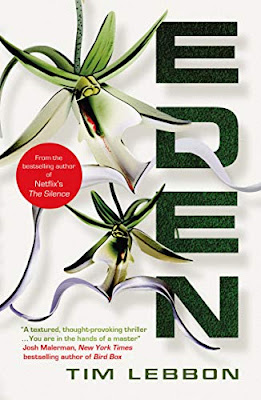When Jeremy Carter, a 49-year-old banker is ambushed in his car, his driver murdered by men with assault rifles in an ambush in London, his boss at MI6 (who he once officially worked for, and still does unofficially) wants someone off-the-books to help him investigate. Enter Dan Raglan, the Englishman of the title, a former French Foreign Legionnaire and a man who has worked for both French and British intelligence since. Raglan sets about investigating, his familial relationship with Carter spurring him on. Soon, he finds himself up to his ears in international intrigue and espionage.
I shan’t give too much away about the plot, but this is a good, solid, high-octane spy thriller. The blurb on the back gives it away that at some point Raglan will need to sneak into a penal colony deep in the snowy wastes of Siberia, a near-impossible mission. But this happens towards the end of the book, and in actual fact, I found the body of the plot, which occurs in London, far more compelling.
This a novel that fits into that muscular genre of action/espionage, more Lee Child, Vince Flynn, or Stephen Leather than John Le Carre. There’s enough here to make it stand out from the crowd, it’s well-plotted and the characterisation is good, but I did find the odd irritating flourish of cliché. Am I the only one who finds the femme fatale a little tiresome? Why does the action hero have to fall into bed with a female colleague? Is this just a convention that thriller readers on the whole expect, and are my complaints just me being a little stuffy?
That said, this is a small flaw - and as mentioned, it might be just me who sees it as such - in an otherwise well crafted and enjoyable novel. One thing I did like about the novel, is that people you don’t expect to die, do. This is something that Boardwalk Empire and Game of Thrones excelled at and elevated them above the competition: never knowing whether a cherished character might get killed does wonders for the tension. I won't give anything away, but there are a couple of times in this novel when a character who you think won't end up on a mortuary slab, does, in fact, do so. The author is certainly not scared to kill his darlings, always a good thing with a thriller writer.
The Englishman holds its own in a crowded field and I certainly hope that there’s a sequel. The characters left standing at the end could certainly carry one.
4 out of 5 stars



